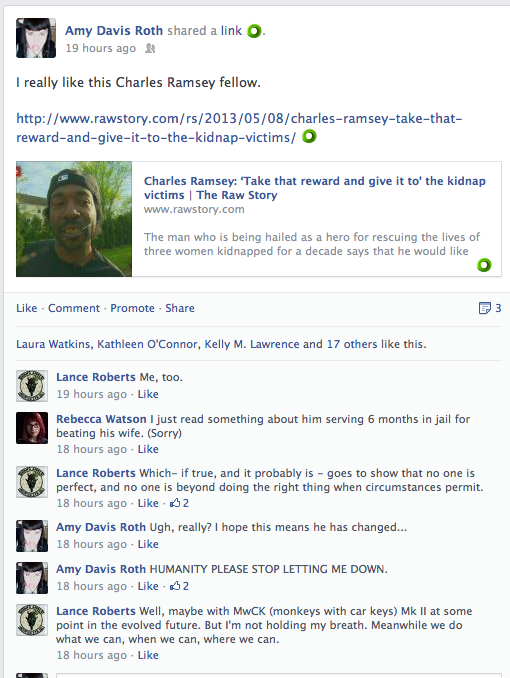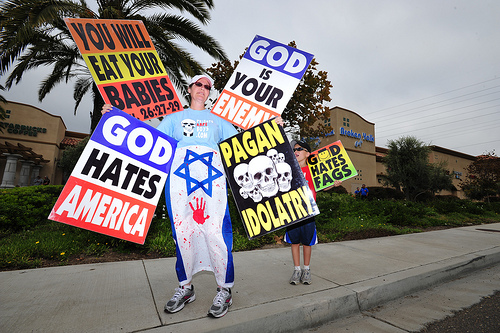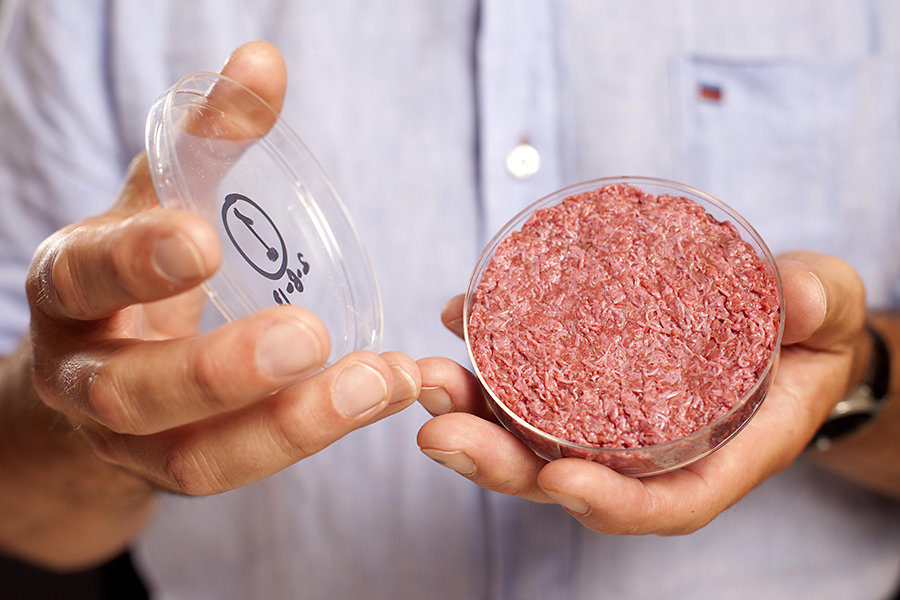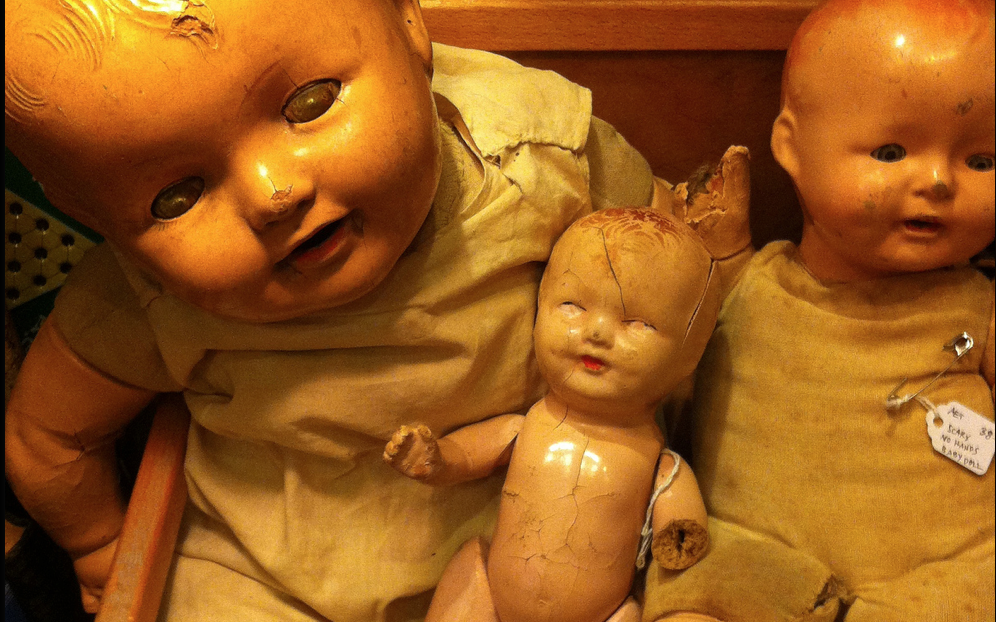AI: Charles Ramsey and What it Takes to be a Hero.

Yesterday, I posted on twitter and FB that I really “like that Charles Ramsey fellow.” For those of you living under a rock, Charles Ramsey is the man who pried open a door to help kidnap victim Amanda Berry (and ultimately two other women and a young child) escape from a decade long kidnapping ordeal in Cleveland, Ohio that is so completely awful that I don’t even want to write about it and I almost decided to do laundry while simultaneously poking my eyes out instead. But alas, here I am anyway because I am a dedicated blogger. If you want to learn the specifics surrounding the horrors that the women went through go ahead and do so, I won’t be posting any case specifics here. I will provide some links at the bottom of the page. But be forewarned, the triggers are many. It’s so awful that I literally feel sick from researching it.
Now back to Mr Ramsey.
Other than Amanda Berry’s total badassery at being able to initiate the escape and the fact that all women have survived this absolutely horrific ordeal, Charles Ramsey is the only other speck of good in this tragic story.
Scroll down for more.
When he heard screaming that he thought it was a domestic abuse situation he did something. Let me reinforce that. He did what often times people are afraid or conditioned NOT to do. He stepped up and helped in what appeared to be a private situation. It’s called bystander intervention and Amanda Marcotte has a written a post about it.
Quote from Marcotte’s article:
I’ll be blunt: Most of us, sadly, do not react to perceived domestic violence this way. When we think what we’re seeing is domestic violence, most of us turn and look the other way, not because we approve of it, but because we still tend to think of it as “personal” business that we should stay out of. Often, we’re understandably afraid that intervening will put us in danger or that the victim will turn on us, because sadly that is often exactly what happens. So we look the other way.
But not Charles Ramsey. He did not look the other way. He did something and even after this act he does not even consider himself a hero. He did what he felt any “decent man” would do.
He stated that he is not a hero, he is an American. “It is what it is, bro.”

Now, back to my post on twitter about how I really liked that Ramsey fellow.
Soon after I posted that, I was informed that Charles Ramsey wasn’t such a good guy. It seems he spent 6 months in prison for domestic violence convictions. He has three convictions that resulted in two separate prison terms.
Does this change things? Does the man who stepped up when he was truly needed and helped save four abused women still get to be a hero when he himself is a convicted abuser? Is this act evidence that he has changed?
In his words: (full disclosure I quoted below from TMZ but it seems legit.)
I’ve made amends with the people involved and we’ve all moved on and grown up.
Those incidents helped me become the man I am today and are the reason why I try to help the community as much as I can … Including those women.
If I had so much hatred for women, I would have minded my own business this week and walked away instead of risking my life to save someone else.
And from TMZ:
For her part, Ramsey’s ex-wife says Charles eventually apologized for the domestic incidents and the two are now on an “okay basis.”
Is it even reasonable for us to dig into this man’s past at all? Is it beneficial in any way? Will this digging by the media and yes, even bloggers like myself scare away other people from getting involved the next time someone screams for help?
By all accounts Ramsey did the right thing in a shining moment of bravery. He has even reportedly turned down the reward money, saying instead it should be given to “those girls.”
It has been pointed out to me that this story of Charles Ramsey is indeed a nuanced and multilayered tale. I haven’t event touched on the sad state of race relations in America that is illustrated in all of this. Or how the media is treating Ramsey because he is a black man (yes, he is treated differently than if he were white) or how Ramsey himself talks about “pretty white women running into a black man’s arms” only happening in dire situations or the fact that “a pretty white girl” would never be in a latino man’s home. That part of the story would take an entire post in itself.
So for now I will just leave you with these questions: Does it matter that Charles Ramsey was himself an abuser of women? Is he still a hero that we can point to as a positive example? Is he even a hero at all or just a guy who did something right? If we can’t hope for and trust in the change and growth of individual people than how can we ever make the social changes we and other activists are fighting for? And ultimately, do we need heroes or just a lot more decent human beings?
Fucked-up trigger-filled info about the kidnapping case:
Who is who in this case.
Ariel Castro the main kidnapper pretended to help look for one of the missing girls.
Arial Castro held on 8 million dollar bond.
And more here.
The Afternoon Inquisition (or AI) is a question posed to you, the Skepchick community. Look for it to appear Sundays, Tuesdays and Thursdays at 3pm ET.





Yup, complicated.
I think part of this is simply because we can be worse to intimates than to strangers, because intimates are in a position to get on our nerves / piss us off / get in our faces that strangers aren’t. A bad marriage can bring things out in people that they might never display or discover otherwise.
And I like him too. I like his way with emphasis. I love anyone who does good emphasis.
Perfect heroes don’t exist, you can either have flawed human ones, fake supernatural ones or none at all. The reason for heroes is to extoll a virtuous act that we would like to see more of in our culture, in that regard he is definitely a hero. Given the details about how the place had been reported multiple times and what the neighbours told the police and nothing happened we need people like him to take action and not be bystanders.
I actually have to disagree. I think that if this is virtuous act that we would like to see more of, then we SHOULDN’T call him a hero. Heroes go above and beyond the normal moral expectations, whereas I think what Mr. Ramsey did ought to be what any moral person should do (so long as they are physically & psychologically capable of helping).
But perhaps that is my personal bias. I am loath call anyone a hero. When you have to confront the flaws of someone that you strongly identify with, you either get personally hurt or you dig your heels in to rationalize it away. And neither position is one I like to find myself in (that’s what xe said).
I think it matters in that he (and his former wife) seem to believe he’s changed, and perhaps his incarceration was a part of that change. And, although I imagine it would have been better for everyone involved if there wasn’t a domestic violence past in his story, I also find it hopeful that his is a story of doing something right even though he’s done something wrong in the past.
Oh damn. So you know, I’ve been avoiding details of this because… well, I have enough issue with my on-going two weeks-long headache and I don’t want to put much thought into this. Yeah, I am being pretty selfish. I read the beginning of your post. “Ooh, something possitive about the story! This is the sort of detail I’d like to learn”
So, I guess this pretty much confirms it. Rebecca Watson ruins everything!
On a more serious note. People make mistakes and sometimes awful mistakes that mark their image to society and to me permanently. But this man is trying to mend things and change. Has he really changed/ Will he really change? I don’t know. But at least trying to change is an improvement over what most people do. In that regards, he is a hero, even if the villain in his story is his past-self.
What is a hero except the person who does the right thing at the right time?
I think it is pertinent that he’s been convicted of domestic violence… and that he’s made amends and they appear to be on OK terms. Because it is a sign that people can learn and grow.
I doubt he’s perfect, but he’s done a good thing and ended a horrible situation. Since then, he’s shown compassion to the victims, and been reasonably cool under the scrutiny.
This is the problem of identifying people as ‘good’ or ‘bad,’ instead of actions. ‘Persons’ are dynamic, they are diachronic, they are messy, often contradictory types of things. ‘Actions,’ on the other hand, can be understood synchronically and statically. What Ramsey did by intervening was a good action (this fact is partially constituted by the situation. Had he barged in on a rehearsal of a play or a sex game of consenting adults the action would not be ‘good’. So even actions have contextual aspects relevant for identification).
The talk of ‘heroes and villians,’ of ‘good guys and bad guys’ is too simplistic to be useful. We want to think that an individual who performs mostly ‘good’ actions is a ‘good person.’ That an individual who performs mostly ‘bad’ actions is a ‘bad person’. I can’t imagine what purpose such categorizations are meant to serve but there seem to be assumptions of an underlying essentialism regarding persons. Unfortunately that’s just faulty metaphysics. There’s is no substantial ‘self’ underneath the actions performed.
This morning I read about a Dominican guy who claims he was already trying to open the door when Ramsey got there. http://www.slate.com/blogs/the_slatest/2013/05/08/_angel_cordero_cleveland_kidnapping_nobody_s_praising_the_less_flamboyant.html
If that is true it is very sad and rather offensive that he is being ignored in this because he does not speak english and that Ramsey hasn’t mentioned him. Although, from the article it seems he is happy not to have the attention.
We have degraded the word hero by overuse in referring to sporting heroes and such, and I am as guilty of this as anybody.True heroes tend to be dead, like the marine who fell on a grenade at Iwo Jima to protect his buddies and won the Medal of Honour. I would hate to disrespect people such as these, and I think true heroism involves somebody risking their life to save others. The cops, fireies and civilian heroes of 9/11 certainly fit the bill.
So is Ramsay a hero? Given that he was up against a psychopath, possibly armed (good odds of that in the USA), maybe on the other side of the door, for all he knew, yes, he was a hero. I like the guy too, and why deny him his 15 minutes of fame?
At the same time (not “but”, Marilove, but rather “also”) I would suggest that many fairly ordinary folks display heroism in their daily lives, in the sense of perseverance and often triumph against mighty odds. In that sense, the women in this story are the heroes.
I thought to add to the 2nd paragraph “Just not as big a hero as the others”
and to the 3rd “This type of heroism may well be more difficult and more praiseworthy than the other”
I was going to say, the previous character of the hero has no relevance whatsoever
and then I thought “unless you use hero in the sense of “a fine example”
There are other senses too – kicking the door down was itself an heroic (unusual) action just as we talk of heroic surgery
and then there is hero meaning main character.
Fucking language – how does that work?
And now shit is getting messy since the prosecutor is going for murder charges in the pregnancies that were terminated (by Castro) while the women were in captivity. This is another part of this disgusting story that deserves it’s own post. Seriously, fuck that Castro guy but now this case could make our fight for safe and legal abortions even more difficult because the “murder” word is getting legally attached. Sigh. http://usnews.nbcnews.com/_news/2013/05/09/18145259-prosecutor-will-seek-murder-charges-for-terminated-pregnancies-in-kidnap-case?lite
Bummer, Amy. From your researches, do you know what the story is about his brothers? Did they live with him, and if not, why were they arrested then let go – that seems a bit odd.
I’m not clear on the details only that they have not been charged with anything as of yet. Word is “they didn’t know about it’ but that seems sorta unlikely to me. If anyone knows more, let us know.
My understanding is that these charges are consistent with RvW in that he can only be charged for murders on pregnancies he ended post-viability. Also that in Ohio the law doesn’t apply to terminations performed by doctors or women choosing to terminate their pregnancies. (IANAL… This is just what I think I heard while listening to MSNBC in the background as I was browsing Bang With Friends.)
That’s my understanding as well. It’s murder because it wasn’t performed by a doctor, and it was against these women’s wishes (or they at least had no say in it, which removes their consent).
No, sorry, if you’ve ever made a mistake in your life you can’t simply serve your debt to society then put yourself in a situation that could likely get you killed and just save a handful of women who have been living in the most nightmarish of circumstances and forfeit your reward money to a child born out of rape and kidnapping and just GET TO BE a hero for a day. No, sir, that’s not how it works.
Letting Charles Ramsey rescue these women is almost like victimizing them twice, really. In fact, I say we should put Amanda Berry and friends back in the house and let them be rescued by the nice, young, handsome, white doctor or lawyer they deserved to be saved by; the kind of man who, in turn, deserves to save young captives.
Heroes are made, not born.
What causes it to happen is physiology, plus some good luck, plus some good people helping you along the way.
https://en.wikipedia.org/wiki/Monomyth
Same with anti-heroes, they are made and not born too. Some bad luck, some bad people hurting you along the way and physiology can turn anyone into an anti-hero.
That is not the narrative that “leaders” want to use. They want to attribute heroic actions to “leadership”, and anti-heroic actions to a lack of “leadership”. This is why the GOP is blaming Obama for GOP intransigence because Obama is not showing “leadership”.
We, culturally, tend to think people can’t change. But that isn’t true. My mother was abusive to me and my older brother, but not my younger sister. I don’t think this is common, so being wary is generally a good idea, but still it’s possible.
I don’t give a flying fig about the word hero. I am just glad he did what he did.
Ramsey spoke well and looked well on TV. This is more than enough for contemporary standards of heroism.
More will be revealed about his criminal past. It is entirely possible that his domestic abuse took place in drunken black-outs, and that if he is sober today he is not acting on the same basis.
Or he may be a rage-addled wife beater who just happened to act like a citizen in a crucial moment.
WE DON”T KNOW YET.
I think there are two issues.
One is that Amanda Berry is the real hero and the most important heroic act that took place that day was taken by her.
Second Charles Ramsey did what all people should do. Act when someone is definitely in distress. It’s actually a shame that he’s become the focus of the media. I do see him as a hero, but the reason he is is because most people don’t react the way he did. Which is sad.
One more thing. I actually think part of the reason he acted is because he had changed. Or at least I’d like to think so.
As Melissa Harris-Perry pretty much said last night on Totally Biased, it takes a great deal of courage for a black man in America with a criminal record to not just mind his own damn business and keep moving when he hears a young white woman screaming for help.
THIS
Scribe, I think you are right, there has to be an element either of risking your own neck or of epic struggle to be called a hero and the past record does not detract from that but rather adds to it as a story of inspiration.
Actually yeah, that’s another facet to this whole thing.
One of my own personal heroes is medic and inspirational leader “Weary” Dunlop, who saved countless lives in POW camps on the Thai-Burma railway during WWII.
http://en.wikipedia.org/wiki/Edward_Dunlop
Given that this was an environment of daily sadism and torture, where simply falling sick made you liable to be used for bayonet practice, his views on the subject of heroism are worth listening to.
In his autobiography, he observed that people fell into 4 categories.
Those he called “gold” would go out of their way to help others, no matter what the risk.
Those he called “silver” would help others as long as the risk to themselves was not too great – most people were either gold or silver. “Not too great” was still a fearful risk by our standards.
Those he called “lead” would not help others, but would do no harm either.
Finally those he called “dross” would look out only for themselves regardless of the consequences to others.
The culture of helping each other was credited for the higher survival rate of Aussie compared to other Allied POWs.
I think it is Interesting to apply these benchmarks to some we might call heroes – and to ourselves.
Does it matter? Yes, because it shows that he has taken his past and learned from it.
Is he a hero? For now, yes, because it takes courage to do something to right a wrong when most people wouldn’t.. I look forward to the day when doing the right thing isn’t heroic, but something a majority of people do.
If the Angel Cordero story – that he was there first and Charles Ramsey came to help later – is accurate, then Ramsey would appear to be a publicity seeking opportunist masquerading as a hero, albeit a flamboyant and funny one. Not only did he take credit for helping Berry escape, he did so without acknowledging Cordero’s initiative. A real hero doesn’t shamelessly self-promote like that – media figures do.
I agree with some commenters here that to use the word “hero” to describe either of these two gentlemen is incorrect. They were up against a door, not a dangerous, armed sexual predator. And they both knew Ariel Castro – Ramsey famously said they ate ribs together.
The other problematic thing about this whole discussion is the assumption that “most people” would not do what they did. I don’t believe this has any basis in fact, instead being a byproduct of ones own biases. I can’t think of any circumstance where I would NOT seek to aid a woman screaming and frantically trying to open the door of a neighbor’s house. In my opinion (and Angel Cordero’s) any reasonable person would do what they did to help – but that is my bias.
He’s not a hero, he’s a social construct! As a rationalist and atheist, I cannot buy into the very open and public cult of “hero worship”. As many people have done, including Amy.
In my view, just as being a celeb limits your options (not as much as being poor, OBVIOUSLY, but still, it does in some pretty major ways, ask any celeb), being an outspoken atheist and rationalist carries the same burden – you have to be more than “a bit” rational! To me, a hero is a person who runs into a hail of bullets, knowing that it’s a hail of bullets, and necessarily for a higher cause. Bystanders who break with the well-known “bystander effect” aren’t heroes, they’re exceptions to a rule. The only real risk that Charles Ramsey faced in that situation was being publicly vilified for not doing something.
A hero takes a risk. Doing the right thing isn’t by itself heroic. If it is, how do we recognize a ‘true’ (risk-taking) hero? They deserve a higher pedestal, and we beneficiaries or heroism are the ones who must make the distinction.
I’m not sure I subscribe to the idea of “hero” at all. I do think the guy did something heroic, though, or at the very least, pretty brave. I’d like to think it’s what most people would do, but they probably wouldn’t (although they might call the police).
A lot of interesting discussion here. What I’d like to add is that perhaps his own history of domestic violence is exactly what made him act in these circumstances?